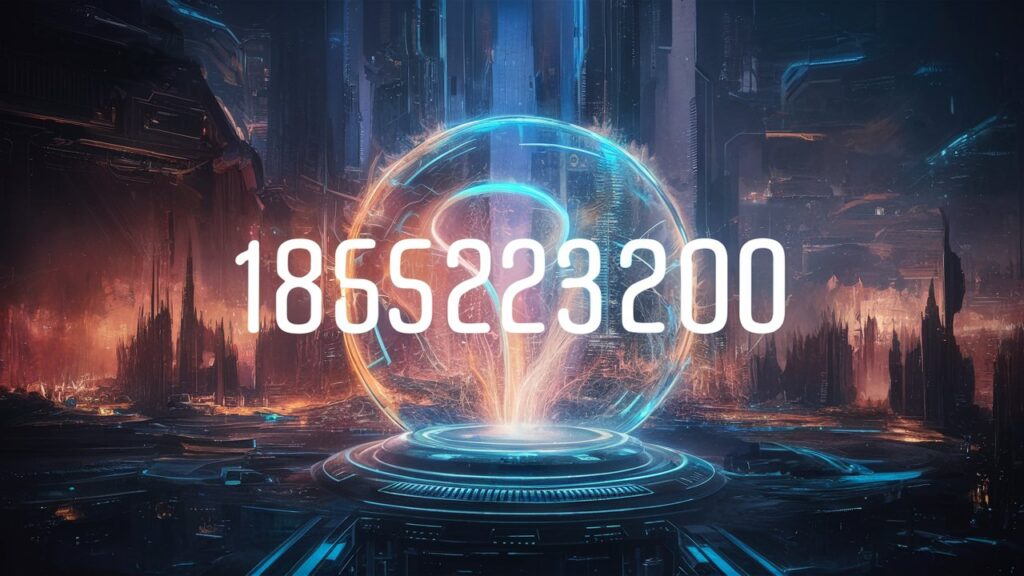The world of internet protocols (IPs) is vast and complex, with each address serving as a unique identifier for devices connected to a network. Among these, the IP address 185.63.2253.200 has sparked curiosity due to its unusual structure and potential implications. However, this address contains an anomaly: the third octet, “2253,” exceeds the maximum value allowed in IPv4 addresses (255). This error suggests a typo or misconfiguration, but it also opens the door to discussions about IP address formatting, cybersecurity, and network management. In this article, we’ll dissect the components of this address, explore its validity, and address broader questions about IP security and troubleshooting.
The Anatomy of an IPv4 Address
An IPv4 address comprises four numerical segments (octets) separated by periods, each ranging from 0 to 255. These octets collectively identify a device on a network. For example, a valid address like 185.63.225.200 breaks down into four parts: 185, 63, 225, and 200. Each octet is a byte, allowing for approximately 4.3 billion unique addresses. The address 185.63.2253.200, however, is invalid because the third octet (2253) exceeds 255. This mistake could stem from a typographical error, misconfigured network settings, or even a placeholder in testing environments. Understanding this structure is critical for diagnosing network issues and ensuring proper communication between devices.
Decoding the Invalid Octet: Why 2253 Breaks the Rules
The third octet in 185.63.2253.200 violates IPv4 standards, as no octet can exceed 255. This limit exists because each octet is represented by an 8-bit binary number, which maxes out at 11111111 (255 in decimal). An octet like 2253 would require 12 bits, making it incompatible with IPv4 frameworks. Such errors can disrupt network operations, causing devices to fail in connecting to the intended destination. For instance, if a router encounters this invalid address, it may discard the packet or trigger an error message. Identifying and correcting such mistakes is essential for maintaining seamless network functionality.
Security Implications of Suspicious IP Addresses
Even invalid IP addresses like 185.63.2253.200 raise security concerns. Cybercriminals often use spoofed or malformed IPs to disguise malicious activities, such as phishing attacks or Distributed Denial of Service (DDoS) campaigns. Network administrators must monitor for irregularities in IP traffic, including invalid addresses, to detect potential threats. Tools like firewalls, intrusion detection systems (IDS), and packet analyzers can flag anomalies and block suspicious activity. Additionally, educating users about the risks of interacting with unknown IPs—valid or not—can prevent inadvertent compromises.
Tracing the Origin of an IP Address
If the typo in 185.63.2253.200 is corrected to a valid format (e.g., 185.63.225.200), tracing its origin becomes possible. Geolocation databases and WHOIS lookup tools can provide details about the registered owner, approximate location, and associated Autonomous System Number (ASN). However, privacy laws and VPN usage often obscure precise information. For example, an address registered to a cloud provider like AWS or Azure may only reveal the hosting company, not the end user. This ambiguity underscores the challenges of tracking IPs in a privacy-conscious digital landscape.
Common Misconceptions About IP Addresses
Many myths surround IP addresses, including the belief that every address can be traced to an exact physical location or individual. In reality, IPs often point to broader regions or institutions. Another misconception is that invalid addresses like 185.63.2253.200 pose inherent threats. While they may indicate errors, they’re not inherently malicious—though vigilance is still advised. Additionally, users sometimes conflate public and private IPs; the latter (e.g., 192.168.x.x) are used internally within networks and aren’t routable on the internet.
Best Practices for Managing IP-Related Issues
To avoid errors like 185.63.2253.200, organizations should implement strict input validation for IP configurations. Automated tools can flag invalid octets during data entry. Regularly auditing network logs for anomalies and updating firewall rules also enhances security. For developers, using libraries that validate IP formats programmatically can prevent typos in applications. Lastly, fostering a culture of cybersecurity awareness ensures that teams recognize the importance of accurate IP management and threat reporting.
Conclusion
The IP address 185.63.2253.200 serves as a gateway to understanding broader concepts in networking, from IPv4 standards to cybersecurity. While its invalid third octet renders it non-functional, analyzing such examples reinforces the importance of meticulous network configuration and proactive threat detection. As technology evolves, so too must our strategies for managing IP-related challenges—whether they involve typos, malicious actors, or privacy concerns.
Frequently Asked Questions (FAQs)
Q1: Why is 185.63.2253.200 considered invalid?
A1: The third octet (2253) exceeds the maximum value of 255 allowed in IPv4 addresses. This makes the address non-compliant with internet protocol standards.
Q2: Could this IP address be used maliciously?
A2: While the address itself is invalid, cybercriminals might use similar typos to confuse users or test systems. Always verify IPs and monitor network traffic for irregularities.
Q3: How do I trace a valid IP address?
A3: Use WHOIS lookup tools or geolocation services like ARIN or MaxMind. Note that results may be limited due to privacy protections.
Q4: What should I do if I encounter an invalid IP?
A4: Check for typos in configuration files or contact your network administrator. Invalid IPs often indicate human error rather than threats.
Q5: How can I secure my network against IP-based attacks?
A5: Deploy firewalls, enable intrusion detection systems, and educate users about phishing and suspicious activities. Regular audits are key.

